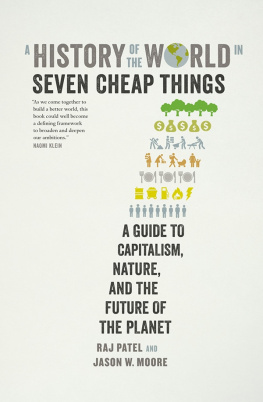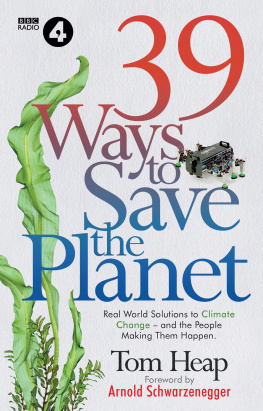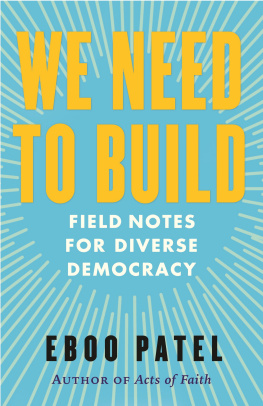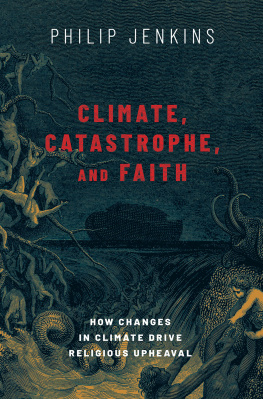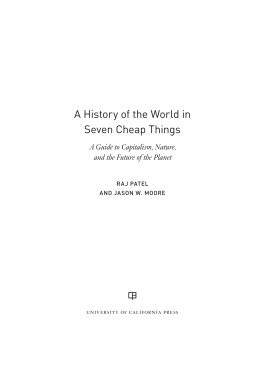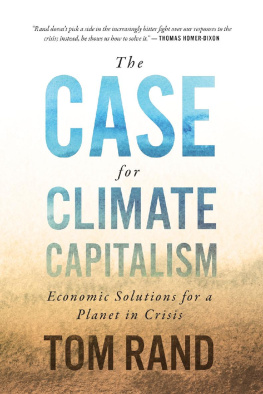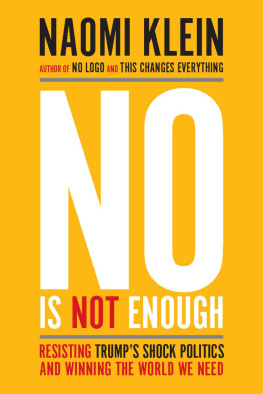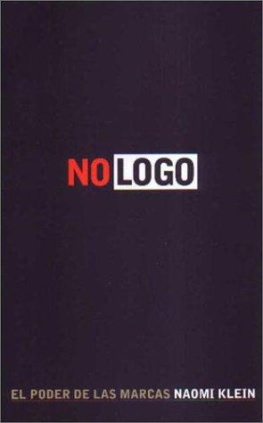Raj Patel - The Value of Nothing: How to Reshape Market Society and Redefine Democracy
Here you can read online Raj Patel - The Value of Nothing: How to Reshape Market Society and Redefine Democracy full text of the book (entire story) in english for free. Download pdf and epub, get meaning, cover and reviews about this ebook. year: 2009, publisher: Granta Publications, genre: Romance novel. Description of the work, (preface) as well as reviews are available. Best literature library LitArk.com created for fans of good reading and offers a wide selection of genres:
Romance novel
Science fiction
Adventure
Detective
Science
History
Home and family
Prose
Art
Politics
Computer
Non-fiction
Religion
Business
Children
Humor
Choose a favorite category and find really read worthwhile books. Enjoy immersion in the world of imagination, feel the emotions of the characters or learn something new for yourself, make an fascinating discovery.

- Book:The Value of Nothing: How to Reshape Market Society and Redefine Democracy
- Author:
- Publisher:Granta Publications
- Genre:
- Year:2009
- Rating:4 / 5
- Favourites:Add to favourites
- Your mark:
The Value of Nothing: How to Reshape Market Society and Redefine Democracy: summary, description and annotation
We offer to read an annotation, description, summary or preface (depends on what the author of the book "The Value of Nothing: How to Reshape Market Society and Redefine Democracy" wrote himself). If you haven't found the necessary information about the book — write in the comments, we will try to find it.
A deeply though-provoking book about the dramatic changes we must make to save the planet from financial madness.--Naomi Klein, author of No Logo and The Shock Doctrine
Credit has crunched, debt has turned toxic, the gears of the world economy have ground to a halt. Yet despite its failures, the same market-driven ideas are being applied to everything from famine to climate change. We need to ask again one of the most fundamental questions a society ever addresses: why do things cost what they do? Radical, original, nimbly argued, The Value of Nothing draws on ideas from history, philosophy, psychology and agriculture to show how we can build an economically and environmentally sound future.
Opening with Oscar Wildes observation that nowadays people know the price of everything and the value of nothing, Patel shows how our faith in prices as a way of valuing the world is misplaced. He reveals the hidden ecological and social costs of a hamburger (as much as $200), and asks how we came to have markets in the first place. Both the corporate capture of government and our current financial crisis, Patel argues, are a result of our democratically bankrupt political system.
If part one asks how we can rebalance society and limit markets, part two answers by showing how social organizations, in America and around the globe, are finding new ways to describe the worlds worth. If we dont want the market to price every aspect of our lives, we need to learn how such organizations have discovered democratic ways in which people, and not simply governments, can play a crucial role in deciding how we might share our world and its resources in common.
This short, timely and inspiring book reveals that our current crisis is not simply the result of too much of the wrong kind of economics. While we need to rethink our economic model, Patel argues that the larger failure beneath the food, climate and economic crises is a political one. If economics is about choices, Patel writes, it isnt often said who gets to make them. The Value of Nothing offers a fresh and accessible way to think about economics and the choices we will all need to make in order to create a sustainable economy and society.
With great lucidity and confidence in a dazzling array of fields, Patel reveals how we inflate the cost of things we can (and often should) live without, while assigning absolutely no value to the resources we all need to survive. This is a deeply thought-provoking book about the dramatic changes we must make to save the planet from financial madness -- argued with so much humor and humanity that the enormous tasks ahead feel both doable and desirable. This is Raj Patels great gift: he makes even the most radical ideas seem not only reasonable, but inevitable. A brilliant book. Naomi Klein, author of No Logo and The Shock Doctrine
As we confront the crisis in the worldview of orthodox economics, Raj Patel offers us a whole new way to think about price and value. Bracingly written and full of surprises, The Value of Nothing is itself invaluable, showing us a path out of the darkness of the economic woods. Michael Pollan, author of In Defense of Food and The Omnivores Dilemma
With The Value of Nothing, Raj Patel has done something of great value: in language utterly clear, concise, literate, and engaging, he takes readers through the murk and mess of the economys collapse. He shows the hows and whys, how we seem bent on a repeat (no real substantive changes to the practices that got us where we are, at the policy level), but also how we, in our communities, if not larger concerted efforts, have some power to right the course. What Raj Patel did so brilliantly with food in Stuffed and Starved, he now does so with money and the economy. Rick Simonson, Elliott Bay Book Company
In this riveting eye-opener of a book, Patel dismantles with great fluidity and precision the reigning theory of the free market and its applications: how it creates in our global society deep inequalities of power, based solely on the diktat that our fundamental needs (water, decent food, housing, health care) are worthless because not profitable, and thus leading to economic chaos and a loss of community empowerment. But there is also hope in the emergence of social groups around the world who are insisting and reclaiming the right to have rights through their democratic engagement. Patel brilliantly shows us how both a fairer society and a sustainable economy are possible as long as we are willing to seize back our freedom to choose from colluding governments and corporations. The Value of Nothing should be required reading for any self-respecting citizen of the world. Marie du Vaure, Vromans Bookstore
Its only January 2010, and we already have a candidate for the most important book of the year. Raj Patels The Value of Nothing takes aim at the conservative orthodoxy that has dominated American politics and economics for the last several decades, and he scores a direct hit. Bill Petrocelli, Book Passage
Raj Patel was educated at Oxford, the London School of Economics and Cornell University. He is a Fellow at the Institute for Food and Development Policy (also known as Food First), a leading food think tank, and a visiting scholar at the UC Berkeley Center for African Studies. He is a visiting researcher at the University of KwaZulu-Natal in South Africa and a visiting scholar at the Center for African Studies at the University of California at Berkeley. He has written for the Los Angeles Times, The Guardian and The Observer, is a regular contributor to NPR and independent media outlets, and though he has worked for the World Bank, WTO and the UN, hes also been tear-gassed on four continents protesting them in international campaigns against his former employers. He is also the author of Stuffed and Starved.
Visit Raj Patel at www.rajpatel.org.
Raj Patel: author's other books
Who wrote The Value of Nothing: How to Reshape Market Society and Redefine Democracy? Find out the surname, the name of the author of the book and a list of all author's works by series.

